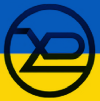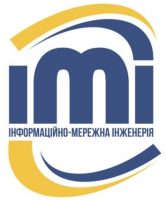Student life is filled with a variety of activities: studying and research, leisure and sports. It is during the student years that lasting relationships are born and the future path of life is determined.
While studying, the most pressing issues are not only the schedule of classes, but also the choice of disciplines that can be chosen for a deeper study in the chosen field. In addition to the syllabus – a description of the discipline included in the educational program, you can choose a block of disciplines that are part of the disciplines of students’ free choice, aimed at in-depth study of a particular area of the educational program “Information and Network Engineering”.
Curatorial guidance is a widespread world university practice based on the interaction of a teacher-supervisor with a group of students. The curator of an academic group, as part of his/her duties, helps students with any issues related to their studies and current events taking place at the university. As a rule, the curator provides relevant information regarding studies, research work, holding any events for students, and also provides the dean’s office or the head of the department with information about students: the state of attendance, changes in the group composition, and also exercises ongoing control over the progress of students in the group for which the teacher is appointed as a curator.
Students are trained according to the class schedule, which reflects the training schedules and the list of disciplines for each individual group according to the chosen educational program. The schedule of consultations, which are drawn up by teachers in addition to the schedule of classes, is an appendix to the schedule of classes. A teacher’s consultation can be obtained in all disciplines at the appropriate time chosen by the teacher, taking into account the students’ class schedule. Consultation schedules are updated every semester and are valid for the relevant semester – spring or fall.
Methodical literature is an important part of the scientific and methodological support of the educational process. The methodical literature includes manuals, guidelines for various types of work in the disciplines of the educational program, as well as the CEMS (complexes of educational and methodological support of the discipline, lecture notes on visual multimedia materials – presentations, videos, etc.
Student practice is one of the types of training that is responsible for mastering the practical skills that students have acquired during the relevant term of study. There are the following types of internships: industrial, pre-certification and research internships. The final stage of the internship is the preparation of a student’s internship report, which is used by internship supervisors to assess the level of practical skills of the future specialist.

